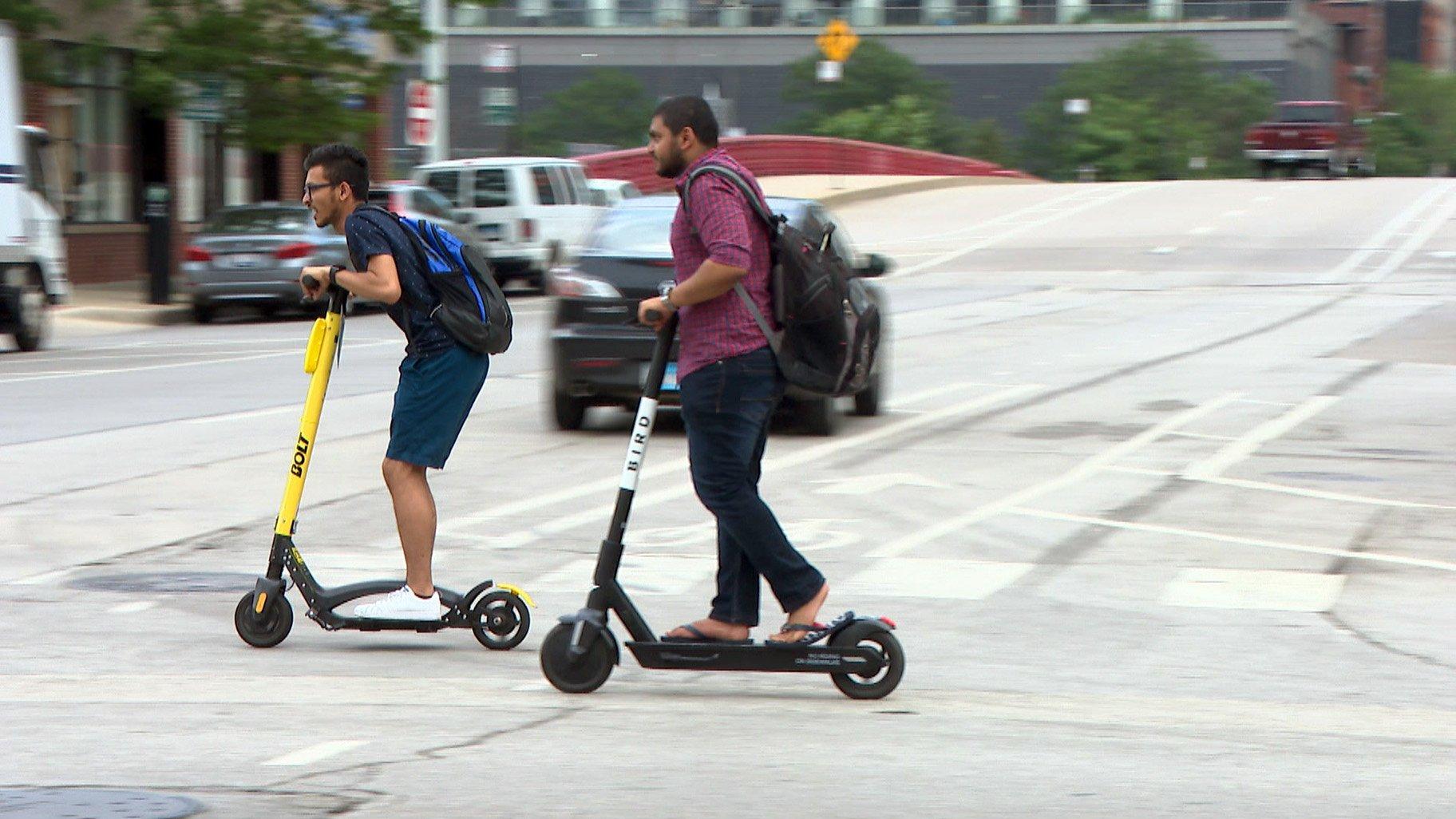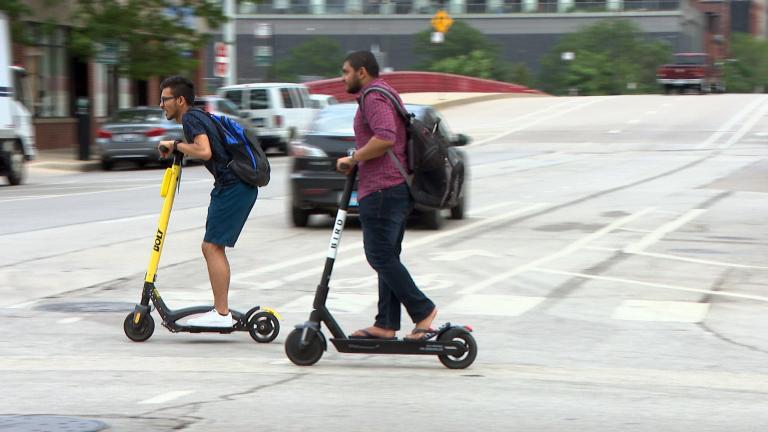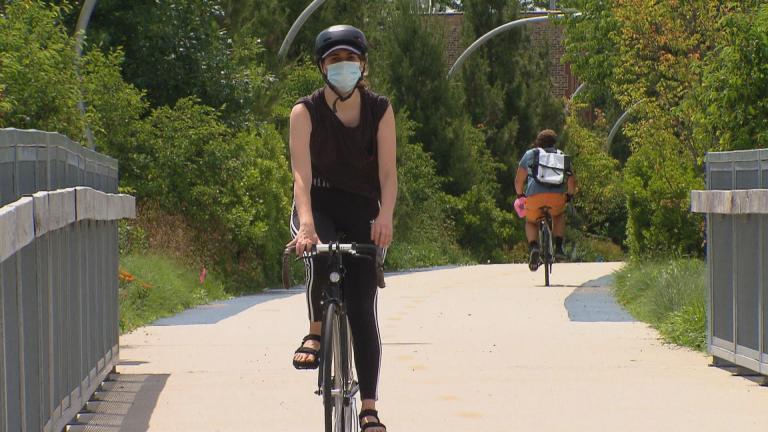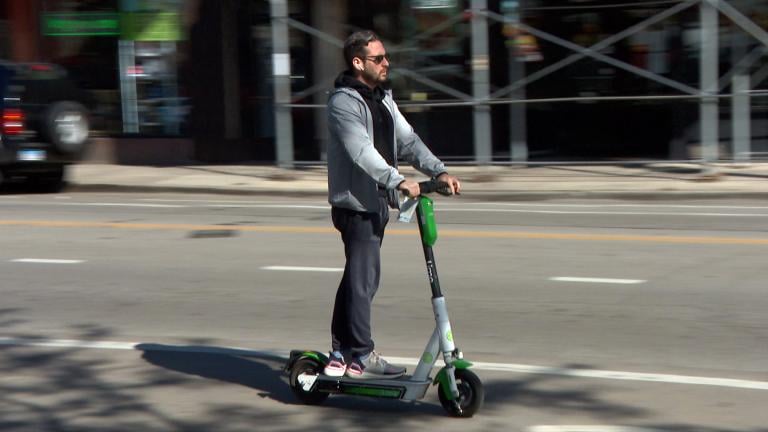 (WTTW News)
(WTTW News)
Shared electric scooters would become a round-the-clock part of Chicago’s transportation system under a measure advanced Wednesday by a key Chicago City Council committee.
Two firms — Lime and Spin — are set to get two-year licenses to keep their 3,000 scooters speeding through Chicago until June 2026. And for the first time since shared e-scooters hit Chicago streets five years ago, city rules will allow the motorized two-wheelers to be ridden between midnight and 5 a.m.
“Chicagoans have come to rely on scooters,” said Ken Meyer, the commissioner of the city’s Department of Business Affairs and Consumer Protection. “The demand for scooter rides keep rising.”
The measure set for a final vote by the full City Council on April 17 won the unanimous approval of the License and Consumer Protection Committee on Wednesday, even as some alderpeople said they remain frustrated by people riding the e-scooters on sidewalks.
In all, more than 4 million e-scooter trips reaching top speeds of 15 mph took place in 2023, with a quarter of trips replacing a car trip, Meyer said.
The new rules only apply to e-scooters that operate outside downtown and west of Damen Avenue, north of Armitage Avenue and south of Pershing Road. In that area, the shared e-scooter program is operated by Lyft, which also operates the Divvy bicycle sharing service. E-scooters remain banned from Navy Pier, the Riverwalk, the Lakefront Trail and the 606 Trail.
The proposal would change the way the program operates by requiring the firms that win licenses to participate in the e-scooter program to pay a $250,000 fee upfront for a two-year license, as well as $16 per month per device, and 16 cents per e-scooter trip. That is likely to boost the city’s revenue from the scooter program from $2.8 million in 2022-24 to $3.2 million in 2024-26, officials said.
The original fee structure required e-scooter firms to pay $1 per day per scooter to the city.
The number of injuries associated with scooter rides had dropped by about half since the first pilot program began since 2019, according to Sean Wiedel, an assistant commissioner with the Chicago Department of Transportation.
In 2019, city officials gave 10 e-scooter firms the green light to operate in Chicago. Lime, which is owned by Uber, and Spin are the only e-scooter firms left operating after a significant amount of consolidation in the industry.
Superpedestrian, which won one of three licenses offered by the city in 2022, went out of business, as did Bird, Helbiz and Veo, which were not selected to operate in Chicago by city officials.
To prevent the two-wheeled vehicles from becoming nuisances for pedestrians, e-scooters in Chicago must be equipped with a system that sounds an alarm when the scooter is ridden on Chicago’s sidewalks, according to the rules.
In addition, scooters must be locked to poles or bicycle racks at the end of a ride, and firms will be required to make sure at least half of their scooters will be available on the South and West sides, according to the rules.
Contact Heather Cherone: @HeatherCherone | (773) 569-1863 | [email protected]







